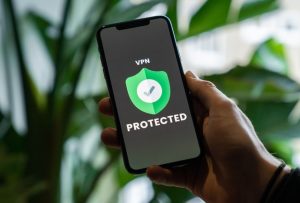Have you ever wondered if your phone is really listening to you? It’s a popular conspiracy theory that has been circulating for years, and now we’re finally getting some answers. In this article, we’ll explore the evidence and technologies that could be making it happen.
A group of computer science academics recently ran an experiment to test over 17000 of the most popular Android apps in order to determine if any were using audio targeting technology. The results showed that none of the apps tested were using audio targeting technology, which suggests that our phones are not actually listening to us.
However, a mobile security company has carried out a research investigation into this conspiracy theory and found evidence suggesting tech giants may be using our phones to listen in on conversations. According to Seufert from Northeastern University, one of the best arguments against audio targeting is that companies would have no incentive for doing so as it would be too costly and time consuming.
When it comes to iOS devices such as iPhones or iPads, Facebook can’t just access the microphone and start recording without permission from Apple’s operating system first. This means there is an extra layer of protection against any potential eavesdropping by tech giants on these devices.
In conclusion, while there is some evidence suggesting tech giants may be using our phones for audio targeting purposes, it appears unlikely given all the factors involved such as cost and complexity associated with doing so successfully across multiple platforms.
What We Know About Phone Listening
The short answer is that there’s no solid evidence that our phones are secretly listening to us. But there are some very real technologies that could be used to make it happen in theory. So, to come straight out with it: No. Our phones are not secretly listening to us. A mobile security company has carried out a research investigation to address the popular conspiracy theory that tech giants are listening and found no evidence of this happening.
Well, it’s technically possible for phones and apps to secretly record what you say, but according to the research conducted by the mobile security company, they found no evidence of this happening either. So, we’ve also heard these conspiracy theories that your smartphone is secretly either watching you or listening to you, right? There’s apps available which can do this if given permission by the user – but again – there’s no proof of any tech giant using these apps without permission from users in order for them to listen in on conversations or watch people without their knowledge or consent.
Some news sites have claimed that companies use our phones to listen to our conversations and figure out what we might want to buy next – however this has been debunked as well due an absence of any concrete proof or evidence supporting such claims. Other reports suggest companies use data collected from smartphones such as location data and search history in order for them target ads more accurately at users based on their interests – however again there is no proof of companies using audio recordings from smartphones for targeted advertising purposes either.
Your smartphone is similar overall similar smart speakers like Amazon Echo and Google Home which do have microphones built-in so they can pick up voice commands given by users; however these devices only start recording when a wake word (such as ‘Alexa’ or ‘Hey Google’) is said aloud first before any other commands can be issued – meaning they don’t record anything until instructed too by the user first – so even though it may seem like your phone could be listening all the time – rest assured its not!
Voice Recognition
Voice recognition technology is becoming increasingly popular as a way for users to control their phones and make searches through voice commands. When certain key phrases are detected, the phone will respond accordingly. For example, Voice Access commands let you control your Android device by speaking and iPhone has Voice Control which can be turned on before use. Additionally, this technology can provide a text-to-speech option so that users can listen back to the text file that’s been created. Furthermore, it is possible to permit other people to use Voice Commands through your account if they have permission from you.
Smart speakers are also known as smart home voice-activated assistants and they are always listening for certain words or phrases in order to trigger a response from the device. This brings up many questions about privacy and security when it comes to these devices being constantly listening in our homes or offices. For instance, when is my Meta Quest listening for the wake word “Hey Facebook”? It’s important for users of these devices to understand how their data may be used by companies like Facebook who have access to this information collected by smart speakers.
Overall, Voice recognition technology provides an easy way for users of all kinds of devices – from smartphones and tablets to smart speakers -to interact with their device using only their voice commands without having any physical contact with them at all times. With its increasing popularity among consumers, it’s important that we understand how our data may be used when using these technologies so that we can make informed decisions about our privacy settings accordingly.
Data Tracking
Data tracking is a potential avenue for phone listening, and it’s something that many people are concerned about. Every time you use a smartphone, it collects data about your usage habits. This data can be used to target ads or even track your location, leading to the question: could this data be used to listen in on conversations? Technology companies have algorithms that track every click and use the collected data for targeted ads or “relevant” posts. Thankfully, these companies and most app makers take steps to protect user privacy by using encryption technology and other measures.
However, there are still ways that companies can collect information about users without their knowledge. Cuebiq helps app makers use GPS technology to determine the location of people’s phones, which some app makers then provide data from back to them. It’s no secret that mobile phones track us in various ways; they can monitor our likes, comments, location and ad clicks among other things. To help readers understand how their phone might be tracking them we explain all the different ways your phone tracks you as well as how you can block certain types of tracking such as location data collection which Apple uses for its maps app traffic route information and other features. By understanding what type of tracking is happening on our phones we can make sure our privacy is protected while still enjoying all the benefits of modern technology!
App Permissions
When you download an app, it may ask for access to your microphone and camera. This has led to rumors that Facebook is listening in on conversations. While this is not true, it is possible for certain apps on Android to access the microphone without permission. This means that whatever audio your phone’s microphone picks up could be recorded and sent elsewhere without your knowledge. To prevent this from happening, you can deny the Google app permission to access your microphone by following these steps: Open Settings on your phone and select Apps & Notifications > App Permissions > Microphone > Google App > Deny. If people are still unable to hear you on phone or FaceTime calls, open the Voice Memos app and tap the Record button at the bottom of your phone before speaking into it.
If you’re looking for a way to record calls or conversations, there are several call recorder apps available for both Android and iPhone devices. Explore our list and comparison of popular Call Recorder Apps such as Automatic Call Recorder Pro, TapeACall Pro, Call Recorder – ACR Premium+, Cube ACR – Call Recorder & Voice Memo App+ ,and more to select the best Phone Call Recording app for you needs.
It’s important to remember that granting an app access does not necessarily mean they will use it maliciously; however if privacy is a concern then taking extra steps like denying permissions can help protect yourself from potential eavesdropping or data collection activities by third parties who may have access to what was recorded through an application’s permissions settings .
The Evidence
The evidence that our phones are actually listening to us is scarce. Reports of people noticing ads on their phones related to conversations they’ve had, or their phones responding to certain key phrases, could be coincidences or a result of faulty voice recognition software. However, news sites have claimed that companies use our phones to listen in on conversations and figure out what we might want to buy next. This has led some people to wonder how apps and websites can target them with such specific ads. To test this popular conspiracy theory, a mobile security firm conducted an investigation. They hypothesized that smartphone microphones were being used to record conversations and the information was then used for personalized Google ads on websites. The results of the investigation showed no evidence that this was happening; however, it is important to remember that your phone always has its microphone active so it can hear your voice commands – if you suspect your phone has been listening and logging your conversations, there are steps you can take for extra security.
Is It Possible?
Is it possible for our phones to be listening to us? The technology certainly exists, and it’s not hard to imagine a scenario where someone could be using it for malicious purposes. However, there is no concrete evidence that any apps are using microphone access to eavesdrop on conversations. Facebook cannot just access the microphone and start recording; the app has to go through code written by Apple.
The Help Desk has confirmed that your phone is not listening in on your conversations – seriously! Despite this assurance, many people still believe their conversations are being monitored. To investigate this further, researchers have conducted studies and found no evidence that phones or apps were secretly listening in on users’ conversations.
This conspiracy theory of “your phone is listening to everything you say” has been widely accepted by many people despite its lack of proof. While technically possible, security experts and researchers say the answer is likely no – your phone isn’t spying on you! Dr Peter Hannay explains: “We’ve all been there – talking on the phone with a friend about something we want to buy only for ads related to what we were discussing suddenly appear online.” This phenomenon can easily be explained without resorting to theories of secret surveillance; instead, it’s more likely due to algorithms tracking our online behaviour rather than our spoken words being recorded by our phones.
Conclusion
In conclusion, the evidence that our phones are secretly listening to us is inconclusive. Despite the popular conspiracy theories, there is no hard evidence to back this up. Mobile security companies have conducted research investigations to address these rumors and found that tech giants are not using our phones to listen in on conversations. Furthermore, it’s technically possible for phones and apps to record what you say but you have no right to privacy when it comes to this matter. Therefore, it’s best take any rumors of phone listening with a grain of salt and be aware that Facebook does not use your smartphone’s microphone for eavesdropping purposes.




Be First to Comment